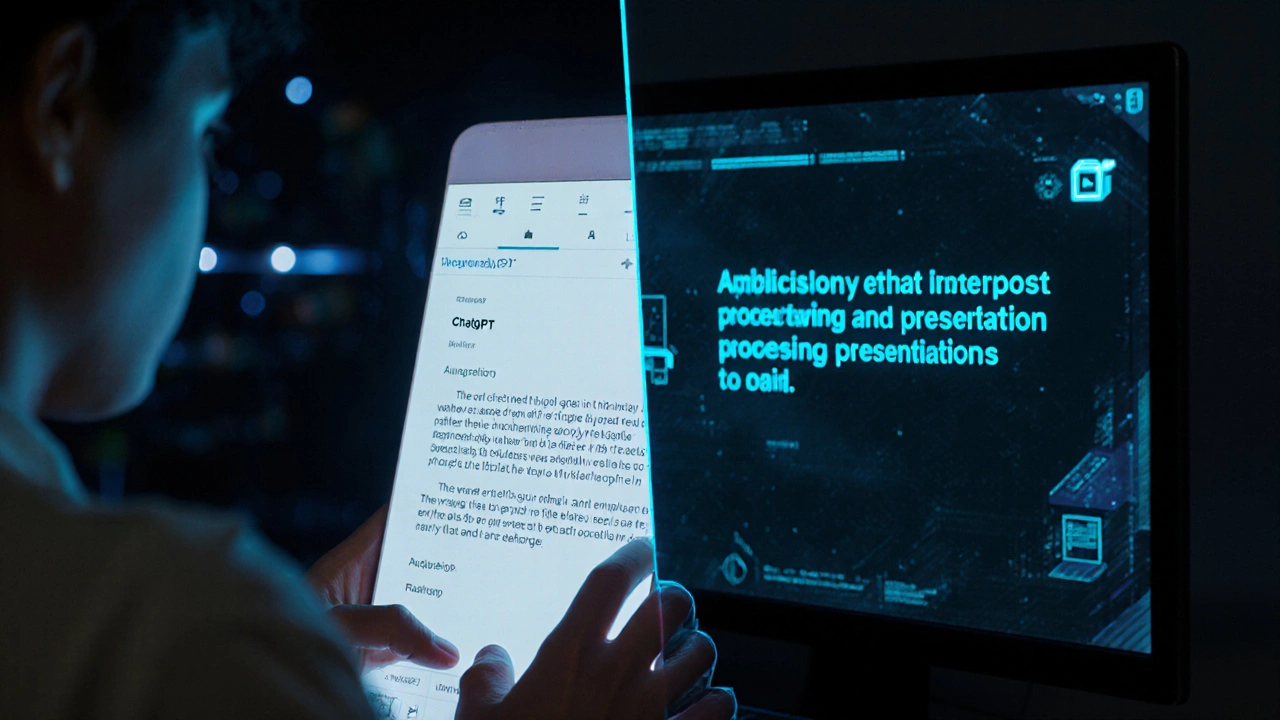What Is the Best Thing to Learn Online in 2025?
 Oct, 30 2025
Oct, 30 2025
If you’re wondering what the best thing to learn online is right now, the answer isn’t a single skill-it’s a digital skill that opens doors across industries, pays well, and won’t become obsolete in five years. You don’t need a degree. You don’t need to quit your job. You just need to pick one thing that actually moves the needle-and stick with it.
Why Digital Skills Are the Clear Winner
Back in 2015, learning Photoshop or Excel might’ve been enough. Today, those are baseline expectations. The real edge comes from skills that let you solve problems machines can’t, or that let you work alongside them. That’s where digital skills come in.
LinkedIn’s 2025 Workplace Learning Report found that 87% of hiring managers prioritize candidates with proven digital skills over those with traditional degrees. Why? Because digital skills are measurable. You can show a portfolio. You can link to a project. You can prove you did the work.
And here’s the kicker: you can learn these skills for free or under $200. Platforms like Coursera, Udemy, and freeCodeCamp offer structured paths that take 6-12 weeks. No fluff. No lectures that drag on. Just hands-on work.
Top Digital Skills to Learn Right Now
Not all digital skills are equal. Some are trendy but narrow. Others are broad, adaptable, and in constant demand. Here are the top three that deliver the most return for the least time investment:
- Data Analysis with Excel and Google Sheets - Still the most common tool used in business. Learning pivot tables, VLOOKUP, and basic charts lets you turn messy spreadsheets into clear decisions. Companies from small shops to Fortune 500s need people who can make sense of numbers. A 2024 study by Burning Glass showed jobs requiring Excel skills pay 22% more than similar roles that don’t.
- Basic Web Development (HTML, CSS, JavaScript) - You don’t need to become a full-stack developer. But if you can build a simple website, fix a broken layout, or tweak a landing page, you add serious value. Even marketers who can edit their own landing pages save thousands in agency fees. And it’s not hard-freeCodeCamp’s responsive web design course takes 30 hours total.
- AI Tools for Productivity - This isn’t about coding AI. It’s about using tools like ChatGPT, Notion AI, or Gamma.app to write emails faster, summarize reports, generate ideas, or create presentations. A McKinsey survey found workers using AI tools daily are 40% more productive. The trick? Learn how to prompt well. That’s a skill you can pick up in a weekend.
What Doesn’t Work (And Why)
People waste time on things that look impressive but don’t lead to real results. Here’s what to avoid:
- Learning programming languages without a goal - Python is great, but if you don’t know why you’re learning it-whether to automate spreadsheets, analyze data, or build a website-you’ll quit by week three.
- Generic “personal development” courses - Time management, mindset, productivity hacks. These sound nice but rarely change your income or job prospects. They’re motivational, not practical.
- Trying to learn everything at once - You don’t need to master Canva, Figma, SEO, social media, and email marketing all in one month. Pick one. Get good. Then move to the next.

How to Pick Your Skill
Here’s a simple filter to find your best fit:
- Ask: What do I already do that feels like a chore? If you spend hours formatting reports, sending follow-up emails, or updating websites-you already have the context. Automating or improving that task is your golden opportunity.
- Look at job postings you’d like to have. Go to LinkedIn or Indeed. Search for roles you admire. What skills are listed in 8 out of 10 job descriptions? That’s your target.
- Check if it’s teachable in under 4 weeks. If a skill requires a 6-month course with prerequisites, it’s not your starting point. Look for bite-sized, outcome-driven paths.
Example: You’re a customer service rep tired of writing the same replies. Learn to use AI tools to generate templates. Now you’re faster, less stressed, and can ask for a promotion.
Where to Start (Free or Cheap)
You don’t need to pay for fancy bootcamps. Here are the best free or low-cost starting points:
- Data Analysis: Google’s free Data Analytics Certificate on Coursera (financial aid available)
- Web Development: freeCodeCamp’s Responsive Web Design Certification
- AI Tools: YouTube channels like “AI for Everyone” or “The AI Advantage” (search for “prompt engineering for beginners”)
- General Skills: Khan Academy’s Computer Science section for foundational concepts
Set a timer for 30 minutes a day. Five days a week. In 30 days, you’ll have something tangible to show-maybe a cleaned-up spreadsheet, a simple website, or a folder of AI-generated templates. That’s more than most people have after six months of watching videos.

What Happens After You Learn It?
Learning isn’t the end. It’s the beginning. Once you’ve got a skill, you need to use it.
Don’t just say, “I learned Excel.” Show it. Take a real dataset-your budget, your workout logs, your favorite team’s stats-and turn it into a dashboard. Post it on LinkedIn. Write a short post: “How I automated my weekly report in 2 hours using Excel.”
That’s how you get noticed. That’s how you get asked for help. That’s how you get promoted, hired, or freelanced.
One woman in Toronto, a stay-at-home mom, learned Google Sheets automation in 6 weeks. She started helping local small businesses clean up their inventory sheets. Within four months, she was making $35/hour on Upwork. No degree. No prior experience. Just a skill and the courage to start.
Final Thought: It’s Not About Being the Best
You don’t need to be the best coder, designer, or data analyst. You just need to be better than the person who didn’t learn anything.
The online world rewards action, not potential. The best thing to learn isn’t the most popular skill. It’s the one you’ll actually use. The one that solves a problem you care about. The one that makes your life easier-or your paycheck bigger.
Start small. Stay consistent. Show your work. That’s the formula.
Is it worth learning to code online?
It depends on your goal. If you want to build websites, automate tasks, or get into tech, then yes. But don’t learn code just because it’s popular. Learn it to solve a specific problem-like fixing your blog layout or pulling data from a database. Otherwise, you’ll get lost in theory. Start with HTML and CSS. They’re visual, immediate, and useful even if you never code again.
Can I learn a valuable skill in under a month?
Absolutely. Many people think learning takes years, but that’s only true if you’re aiming for mastery. For practical use, 30 days of focused effort is enough. Learn to use Excel for pivot tables. Learn to write prompts for AI tools. Learn to build a basic website. These are all doable in a month with 30 minutes a day. The key is doing, not watching.
What’s the cheapest way to learn online?
The cheapest way is to use free resources: freeCodeCamp, YouTube tutorials, Google’s Skillshop, and Mozilla’s web developer guides. Most platforms offer free versions of their courses. You only pay if you want a certificate. But you don’t need the certificate to learn. Focus on building something real-like a spreadsheet, a webpage, or a chatbot. That’s your proof of skill.
Should I learn AI or programming first?
Learn AI tools first. You can use ChatGPT or Gemini to write emails, summarize articles, or create presentations right now-no coding needed. Once you see how much time it saves, you’ll know if you want to go deeper. Programming is powerful, but it’s a longer road. AI tools give you instant value and help you understand what’s possible before you commit to years of learning.
Do I need a certificate to prove I learned something?
No. Employers care more about what you can do than what piece of paper you have. A portfolio of real work-like a cleaned-up budget sheet, a simple website you built, or a video showing how you used AI to save 10 hours a week-is worth 10 certificates. Certificates help if you’re applying to big companies with HR filters. But for most jobs, showing results beats showing credentials.
Next Steps: Your 7-Day Plan
Here’s exactly what to do this week:
- Day 1: Pick one skill from the top three: data analysis, web basics, or AI tools.
- Day 2: Go to freeCodeCamp, Coursera, or YouTube. Find a free 1-hour intro course.
- Day 3: Watch it. Take notes. Don’t skip the practice part.
- Day 4: Do one small project. Clean a messy spreadsheet. Write a prompt that gets a good AI reply. Build a one-page website.
- Day 5: Share it. Post it on LinkedIn, Reddit, or even a private group. Say: “I built this in one day.”
- Day 6: Ask for feedback. One person will respond. That’s your first connection.
- Day 7: Repeat. Pick the next skill. Or go deeper on this one.
You don’t need motivation. You don’t need money. You just need to start. And you’ve already read this far. That means you’re ready.